Gluten is a type of protein that exists with starch in the endosperm of barley, rye, all varieties of wheat, some oats, as well as in brewer’s yeast and malt. Gluten can cause intestinal damage and the autoimmune disorder Celiac Disease in 1-2% of the general population who are genetically susceptible. Non-celiac gluten sensitivity occurs in 6-10% of the general population. So why does it seem that EVERYONE is avoiding gluten lately?
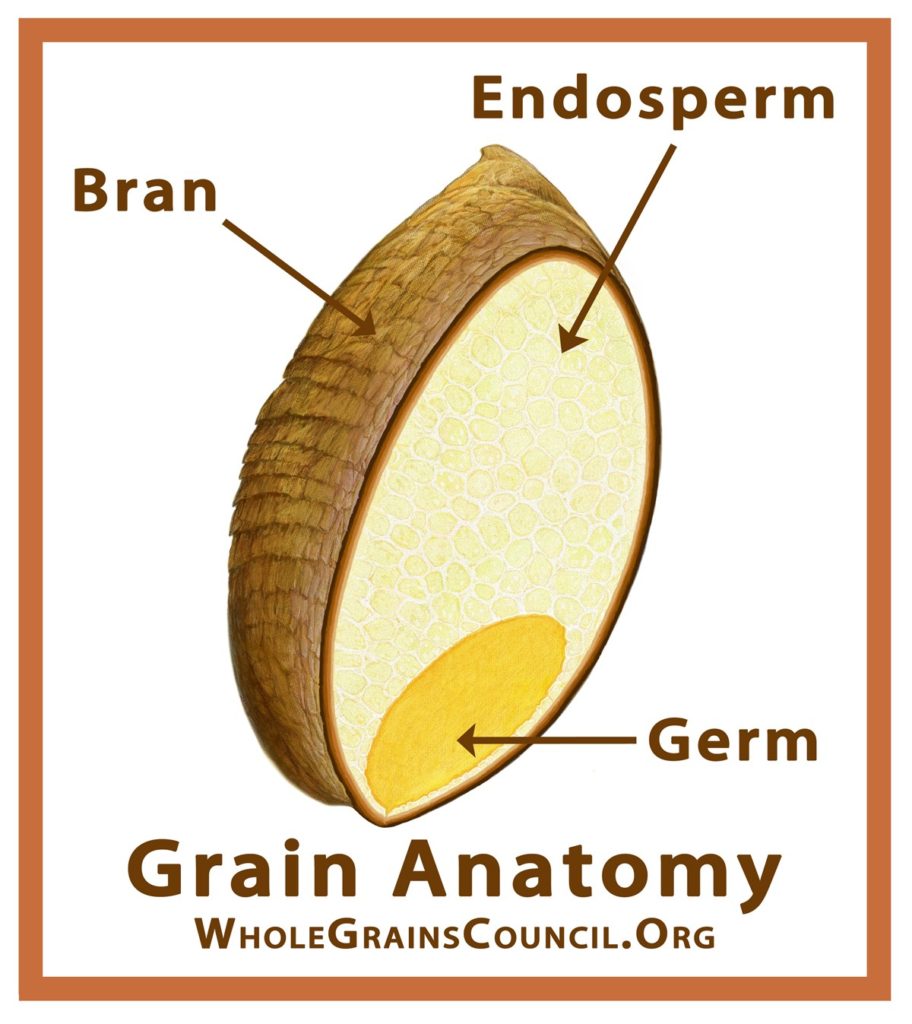
I went to the Celiac Disease Foundation website to see what foods are recommended on a gluten-free diet. This is what I found for breakfast suggestions:
• 4 egg omelet with feta cheese, turkey sausage, and some vegetables
• hot rice cereal, fat-free milk, sugar, cream cheese spread, walnuts, and blueberries
• gluten-free pancake mix (Brown Rice Flour, White Rice Flour, Cultured Buttermilk, Natural Almond Meal, Tapioca Starch, Sweet Rice Flour, Potato Starch, Grainless & Aluminum Free Baking Powder (Sodium Acid Pyrophosphate, Potato Starch, Sodium Bicarbonate), Baking Soda, Sea Salt, Xanthan Gum) with eggs and oil
• gluten-free flour (Brown Rice Flour, Tapioca Starch, White Rice Flour, Potato Starch, Sorghum Flour, Arrowroot Starch, Guar Gum, Sweet Rice Flour, Rice Bran), yeast, water, sugar, salt, oil
• muffins made from 12 eggs, salt, pepper, sausage, vegetables, oil, and cheese

Dinner suggestions:
• lasagna made with pasta, sausage, ricotta cheese, mozzarella cheese, parmesan cheese, vegetables, and herbs
• glazed chicken breasts with vegetables and tapioca flour
• steak with vegetables
• salmon with butter, oil, honey, wine, and seasonings
• pork loin with herbs
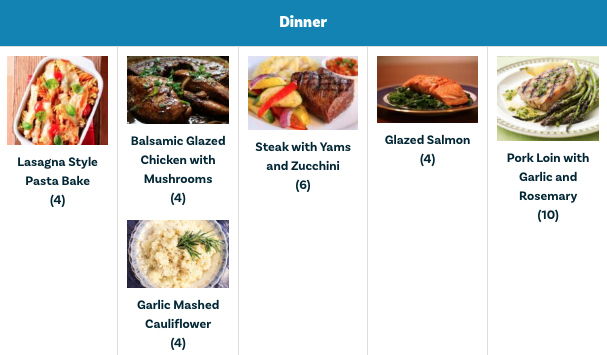
Suggested lunches, snacks and desserts include gluten-free crackers with cream cheese, hard boiled eggs, dried fruit, nuts, yogurt, peanut butter, turkey chili, beef tacos, fried falafel with yogurt & sour cream, pressed sandwich of white bread and cheese, tuna salad with mayonnaise and sour cream, nachos with refried beans, sour cream, and cheese, cookies and ice cream.
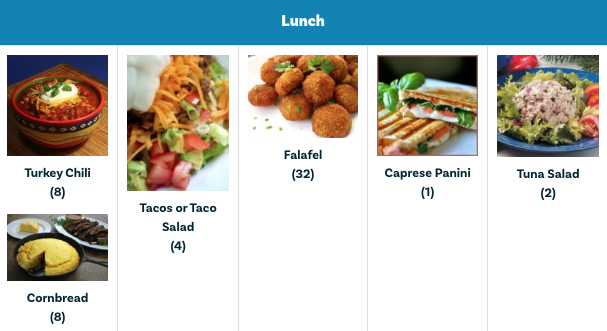
Are you seeing what I’m seeing? Meat, dairy, eggs, oil, sugar….I don’t see how anyone is going to heal intestinal damage eating these recommended no/low-fiber foods. High fiber is crucial for gut health. I suspect that a person eating the recommended Celiac Disease Foundation meals to combat non-celiac gluten sensitivity would be unable to handle gluten exposure not because gluten is inherently unhealthy or dangerous but because the diet is creating a gut environment that is low in fiber, likely weak in microbiome health, and more than likely permeable or leaking. Gluten proteins leaking or escaping from an unhealthy gut can trigger an autoimmune response.
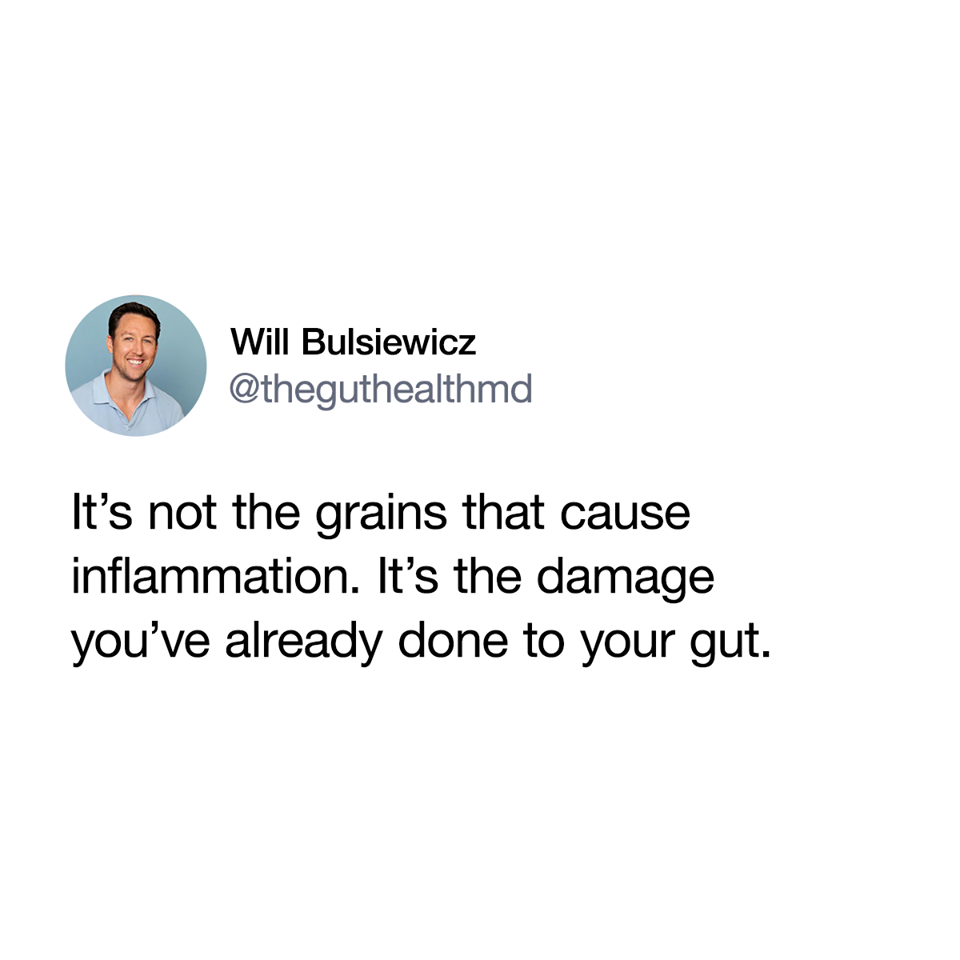
Imagine the Celiac Disease Foundation dietary recommendations with gluten in the form of common wheat flour for waffles, muffins, bagels, bread, and cookies. Wheat flour – a highly processed food – is missing the healthful fiber in the bran of the grain. Combining flour with other low-fiber foods – as present in the Celiac Disease Foundation meal recommendations – is a recipe for gut disease and discomfort. Removing the gluten removes the trigger from the gut but doesn’t heal the gut.
There is evidence of meaningful levels of grain in the human diet dating back tens of thousands of years and perhaps more than 100,000 years. The prevalence of Celiac Disease appears to be rising only recently indicating that something other than the presence of gluten in the diet may underlie this problem. (source)
The way to heal the gut while avoiding the trigger of gluten is to eat a high fiber diet full of whole fruits, vegetables, legumes (beans, lentils, peas), nuts, seeds, and non-gluten whole grains like brown or wild rice, corn, amaranth, buckwheat, Job’s Tears, millet, fontina, gluten-free oats, quinoa (technically a seed), rice, sorghum, and teff. In other words you want to pursue a gluten-free whole food, plant based (GF-WFPB) diet. If Celiac Disease has been diagnosed and confirmed for you, a GF-WFPB diet will be a lifetime pursuit to avoid gluten and heal your gut. If you have non-celiac gluten sensitivity, a GF-WFPB diet can help heal your gut to the point that you may be able to introduce gluten-containing whole grains in moderation or in full.
It is not recommended that whole grains be eliminated from the diet. Whole grains can help you live longer by reducing your risk of heart disease, cancer, diabetes, respiratory disease, and infectious diseases. People who eat the most whole grains have a 16 percent reduction in all-cause mortality compared to those who eat the least whole grains. (source)
Additionally it is in everyone’s best interest to avoid glyphosate which is a common weed killing chemical used in industrial farming. Even whole grains, fruits, and vegetables may be exposed to glyphosate. The best way (though not absolute) to avoid glyphosate is to choose organically grown whole foods when possible. Skip the organic highly processed foods. They are just expensive junk foods. Organic cookies are still cookies.
Zonulin is a protein that controls the permeability of tight junctions between the cell walls of the digestive tract. Gluten and glyphosate increase zonulin production and gut permeability. Research reveals glyphosate damages the epithelial tight junction tissue on contact. Tight junctions function as a gateway for the intestinal tract (which is technically outside of our body) whose job it is to keep toxins, inorganic fiber, chemicals, and foreign invaders from getting inside our body. (source)
Eating high-gluten foods like flour without the whole grain fiber is akin to drinking apple juice without the whole apple fiber. The natural sugar in the whole apple is safe and healthful when consumed with the co-existing natural fiber that slows sugar absorption. The natural gluten in the whole grain is safe – for those without diagnosed Celiac Disease – and healthful when consumed with the natural co-existing fiber. Remove the fiber and suddenly the sugar and gluten are too concentrated for the body to process well. Perhaps non-celiac gluten sensitivity is a sensitivity to too much concentrated highly processed glyphosate-exposed gluten. Perhaps organic whole grain gluten would not trigger gluten sensitivity. It is quite possible that all of us are sensitive to highly processed glyphosate-exposed gluten!
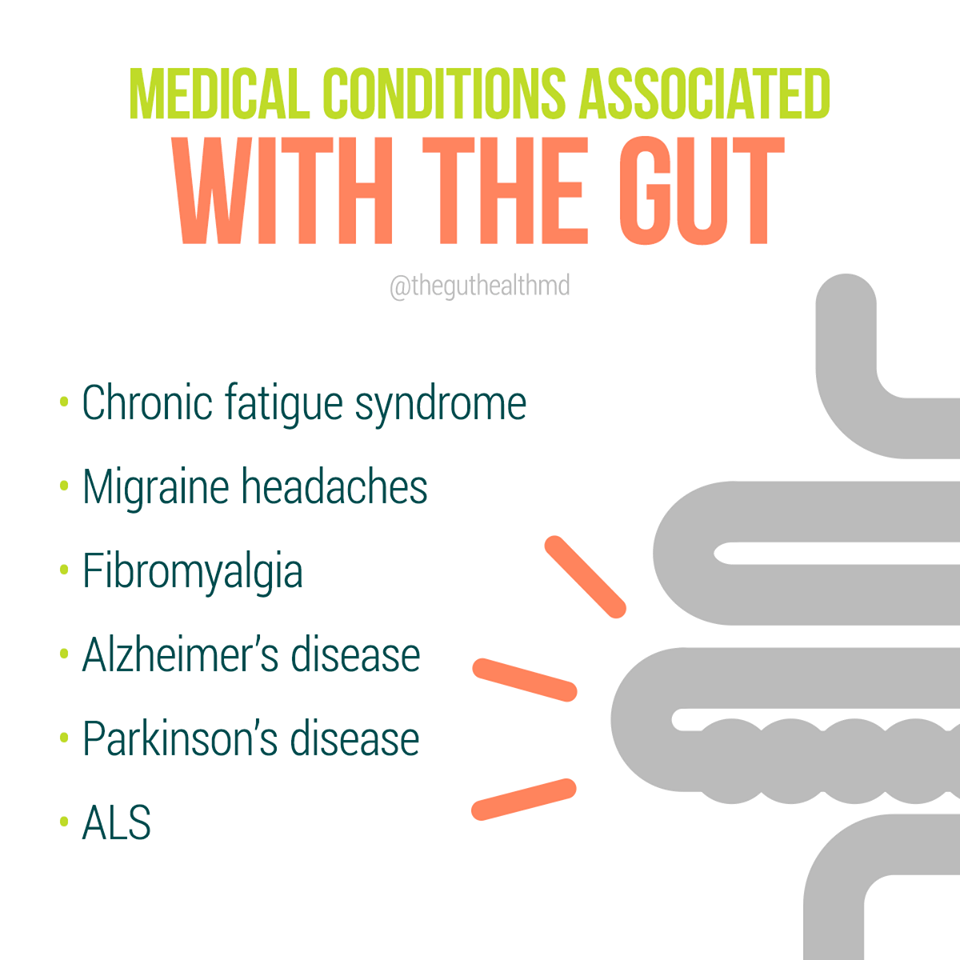
In 1992 glyphosate began to be used as a “ripening agent” or desiccant — stressing or killing plants, including wheat, to accelerate drying and speed the ripening of their fruit immediately before harvest. (source)
In addition to wheat, oats, rye, lentils, peas, flax, potatoes, buckwheat, and millet are also often sprayed with glyphosate as a desiccant, not to mention GMOs (Genetically Modified Organisms) that are designed to withstand glyphosate. With each passing year more acres of wheat, corn, soybean, alfalfa (all ostensibly for feeding livestock), beet (for sugar), cotton, canola, and other staple crops are sprayed with glyphosate. (source)
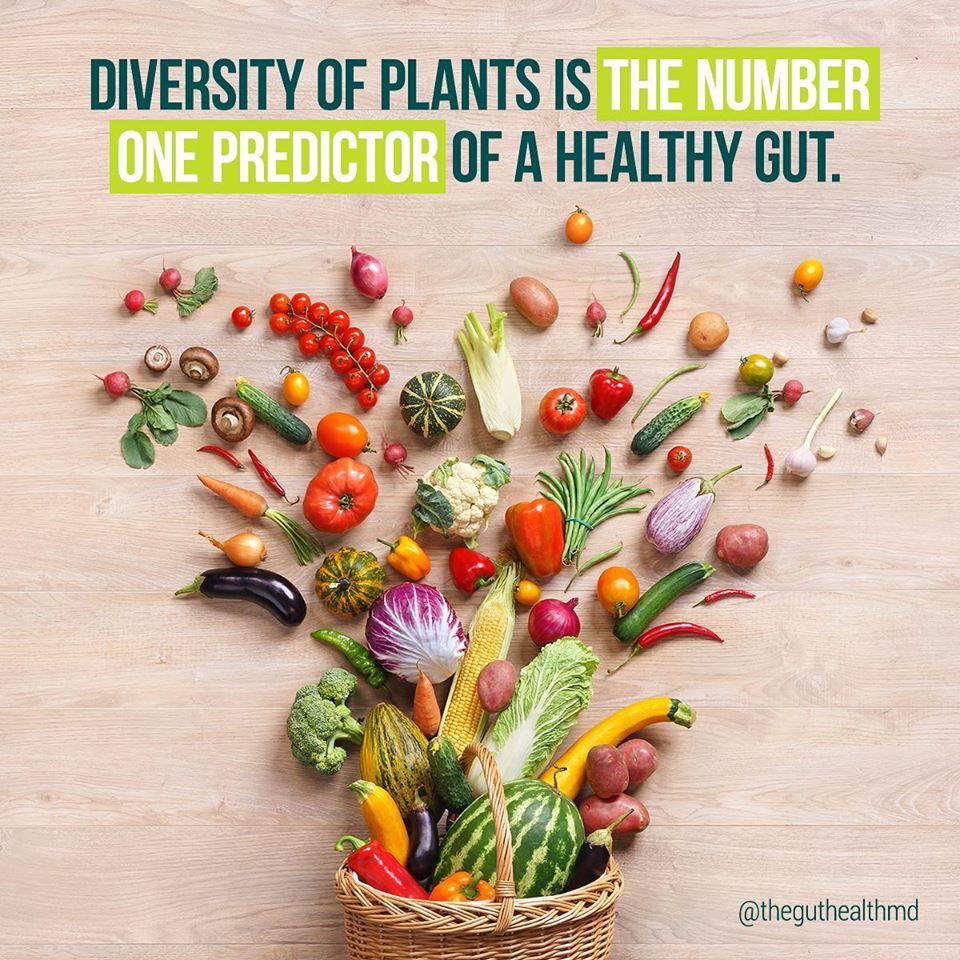
You can clearly see how avoiding no/low-fiber meat, dairy, eggs, refined sugar, oil, and refined grains is a wise choice for health. Purchasing organically grown (when possible) whole plant foods is another wise choice for health to avoid glyphosate. If you can’t buy organically grown, don’t skip the whole plant foods. Conventionally grown whole plant foods are still superior to organic highly-processed foods and other no/low-fiber foods.
In addition to making wise food choices, it is also recommended for improved gut health to avoid antibiotics unless absolutely necessary, avoid artificial sweeteners, limit or avoid alcohol, assess the necessity of over-the-counter or prescribed medications (consult your doctor), control caffeine consumption, and manage stress levels with adequate sleep, exercise, and rest/meditation.
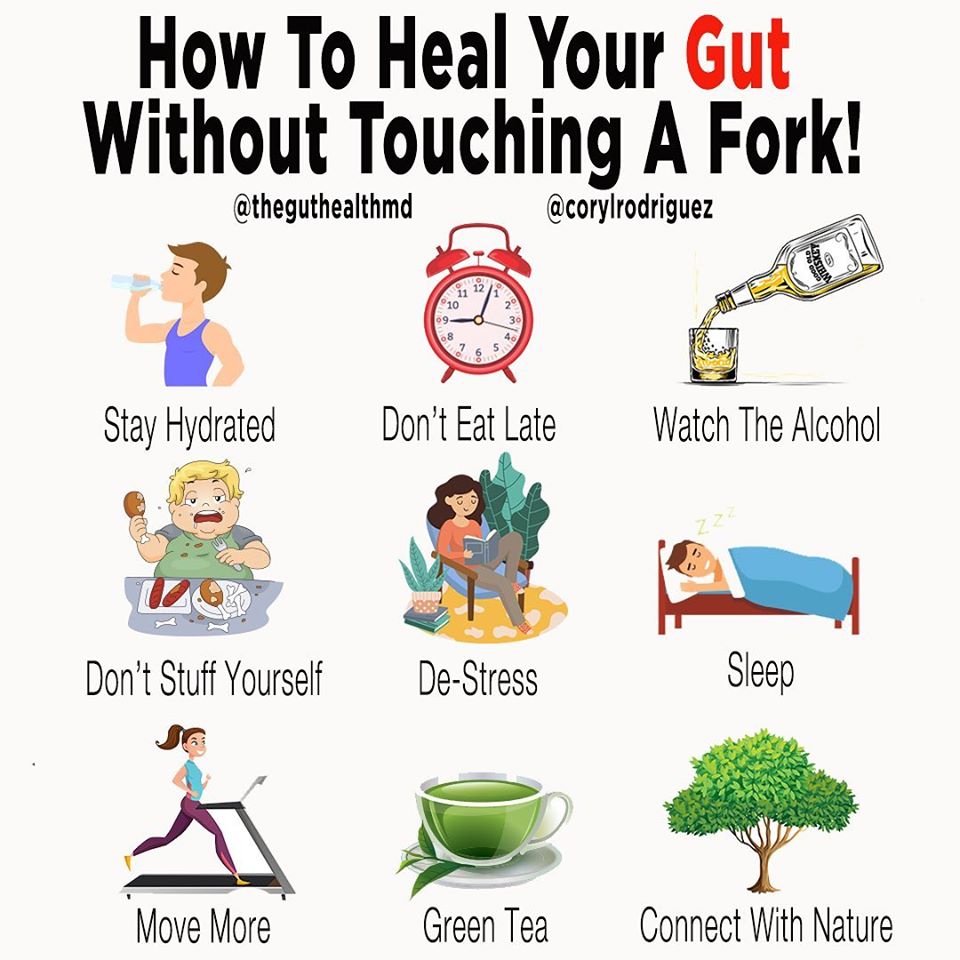
A happy gut can handle the healthful food and drink you consume without bloating, constipation, gas, diarrhea or pain. If your gut isn’t happy, you are not going to be happy. Good health is gut health!
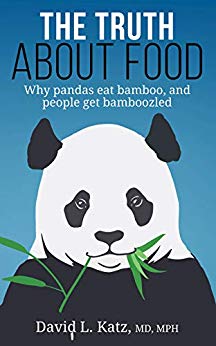

{ 0 comments… add one now }